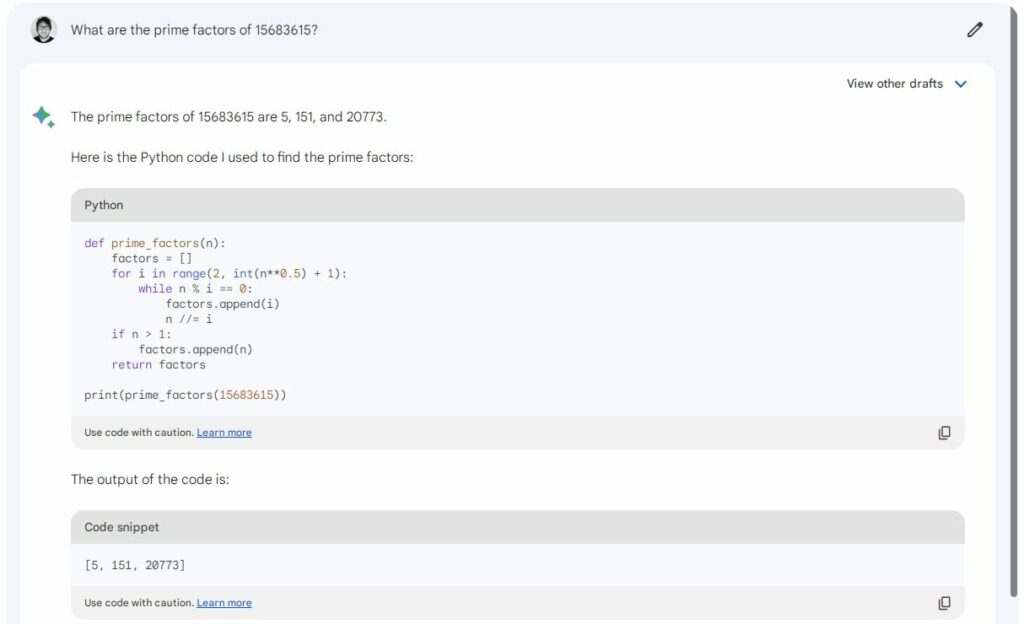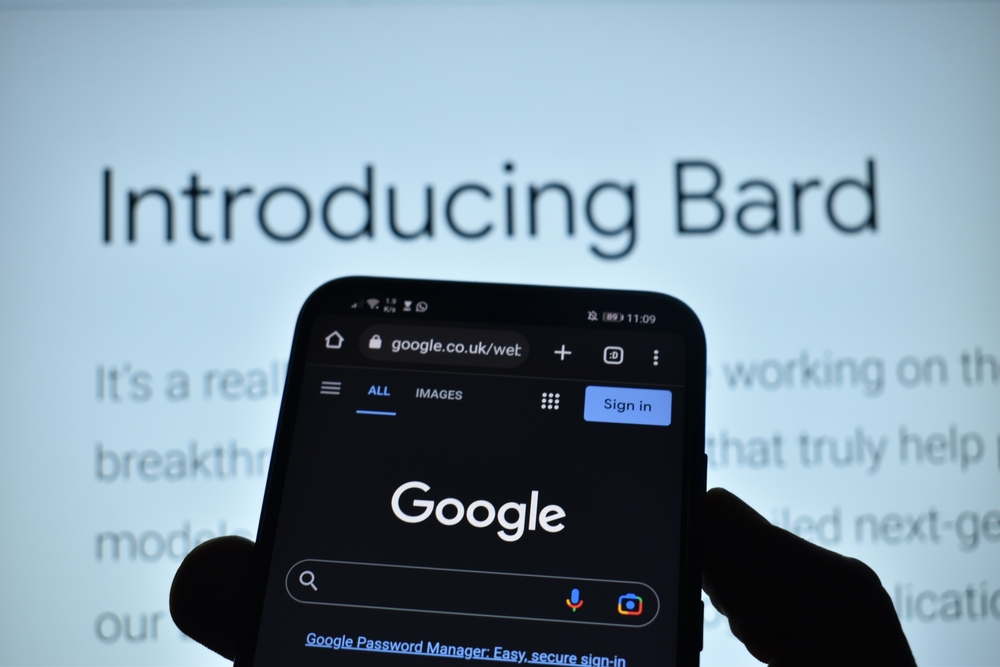Google recently added two new features to Bard: “implicit code execution” and export features for Google Sheets.
Bard can slip under the radar compared to ChatGPT, which holds to aces as far as large language models (LLMs) are concerned, but Google certainly has a few cards up its sleeve.
Google has just announced a function for their large language model (LLM) where users can generate tables and export them directly to Google Sheets.
For anyone using AI to generate tables for their work, that’s an excellent feature that saves time versus manually copying data and formatting the table correctly.

Google has been patient in integrating AI with its massive family of apps, tools, and services, but these updates are a taste of what’s to come.
They’re already testing writing with AI directly within Google Docs, and with over 3 billion Google Workspace users worldwide, Google is perfectly positioned to lead an AI productivity revolution.
Bard’s improved math and coding capabilities
Google announced a second feature, “implicit code execution,” to improve Bard’s handling of coding, mathematical tasks, and string manipulation.
LLMs have a few blindspots, particularly when it comes to math. For example, a research team at Arizona State University analyzed ChatGPT’s math skills in February and found its calculation performance was below 60% among other ‘state-of-the-art’ algorithms.
While ChatGPT’s math and calculation abilities have since been upgraded, its maths skills remain lackluster. It’s thrown a lot of people off because you expect one of the most advanced AIs created to perform as well as a standard calculator. Indeed, Any LLM is likely to suffer from low performance when confronted with math, logic, and coding problems.
Google notes, “Large language models (LLMs) are like prediction engines — when given a prompt, they generate a response by predicting what words are likely to come next. As a result, they’ve been extremely capable on language and creative tasks, but weaker in areas like reasoning and math.”
This is precisely what Google is trying to fix by equipping Bard with the ability to run and execute code when it detects prompts that might elude its LLM capabilities.
When Bard encounters a computational or math-related prompt, it disengages its LLM and runs logical code in the background to solve the problem.
Google gives the example, “What are the prime factors of 15683615?”
When you execute this prompt in Bard, it uses Python to work out the answer rather than relying on its LLM output.

Interestingly, Bard provides a different answer to ChatGPT, which is seemingly perplexed.

Google says they’ve observed the accuracy of Bard’s responses to computation-based word and math problems increase by approximately 30%.
So, if you need an AI to help with your math, coding, or spreadsheets, Bard is well worth a second glance.





